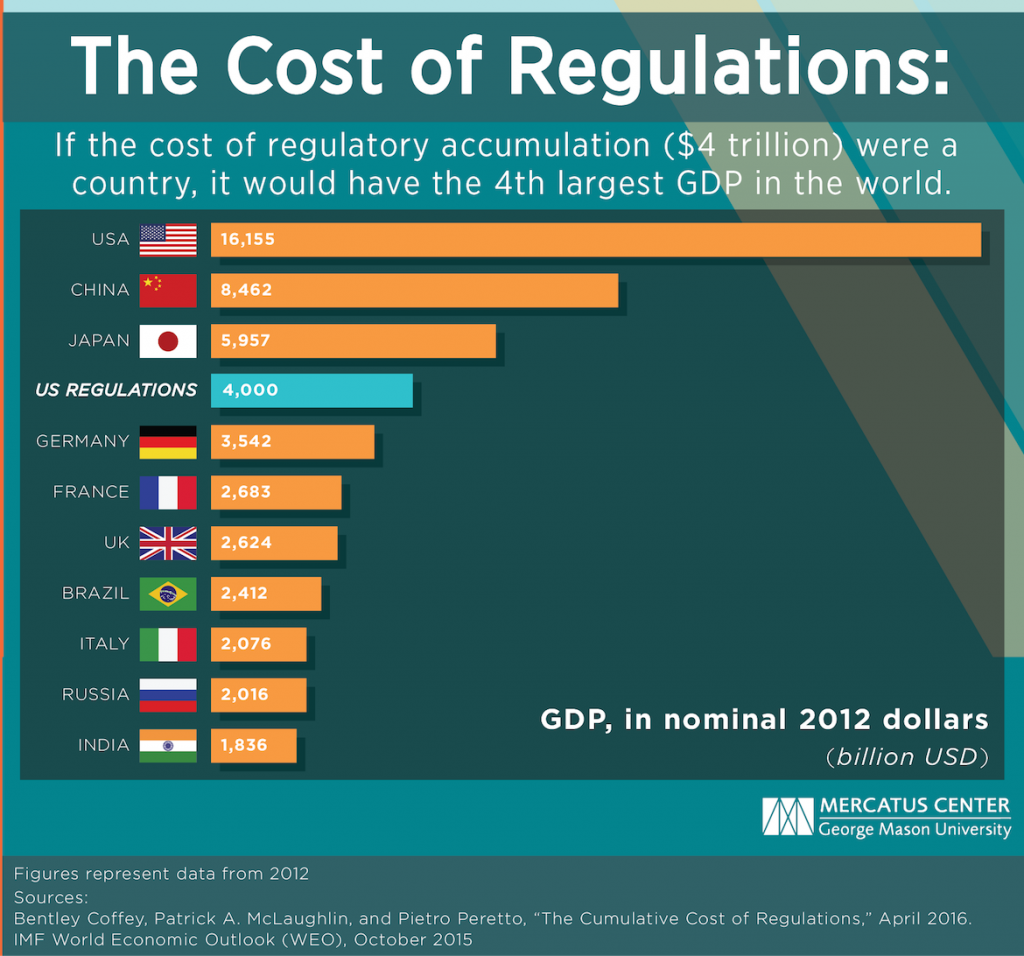Regulation is Stifling Accessible Healthcare
While the politicians debate health-care reform (again), let’s take a moment to consider how the basic flaws in our current system of “health insurance” put someone important at risk last week. That, someone, was me.
I felt sluggish for a while, and I said to my wife that I felt like I had a jellyfish lodged in my chest. She suggested it might be walking pneumonia. That seemed to make sense, so I spent some time on the Internet looking up that ailment, including its symptoms.
I got to thinking about how regulation is responsible for the enormous gap between the expert and the amateur. A lot of sites counseled me to consult a physician for an official diagnosis but noted that walking pneumonia tends to go away without treatment.
I decided I would take the second route rather than suffer the time, the hassle, and the copay that comes with visiting a doctor.
The problem is that healthcare consumers have limited options. At the two ends of the spectrum, they can see a licensed doctor, or they can do it themselves. One option is extremely expensive, time-consuming, and reliable, and the other is free and still time-consuming but not as reliable. In between, there are few other choices. It’s possible to use a service like Teladoc or visit a drugstore clinic in some areas for minor issues like strep throat, an earache, or a sprained ankle, but in the absence of the current system of occupational licensing, there’d be a much broader continuum of possibilities between my unlettered amateur visits to Dr. Google and visits to an actual doctor’s office.
The problem is compounded by the fact that we pay for health-care via “insurance” coverage, which isn’t really insurance but just prepaid health-care.
This system requires lots and lots of rules about what can and can’t be covered and what constitutes medicine. The entire healthcare market would function much more efficiently if there were more options. For treating a lot of conditions, you don’t need someone who went to four years of medical school and worked through a grueling residency. Better to save that talent for more challenging stuff and allow people to seek marginal improvements over DIY diagnosis.
Worried about quality assurance? There’s an app for that, and it’s called the market. Just as Underwriters Laboratory and Consumer Reports test products rigorously and vigorously, a free market would lead medical practitioners to sensitively vet service providers. The American Medical Association, for example, might offer its own certification course.
Note that certification is distinct from licensing. A license means government permission. Doing business without a license could land you in jail. Certification merely says that the certifying organization vouches for the quality of the product or service. If quality differences matter a lot to patients, the AMA certification will be extremely valuable.
But who’s going to protect people from charlatans? It’s a valid concern, but market mechanisms can complement existing rules against fraud. Courts and professional associations should be able to arrive at enforceable standards. Moreover, the relevant alternative to a cheap healthcare provider for a lot of people isn’t a medical doctor. The relevant alternative is doing it oneself. It’s hardly clear that a society of patients making decisions after consulting the Internet is safer and healthier than a society with lots of different healthcare professionals providing lots of different levels of service.
Reprinted from Learn Liberty.
Art Carden is an Associate Professor of Economics at Samford University’s Brock School of Business. In addition, he is a Senior Research Fellow with the Institute for Faith, Work, and Economics, a Senior Fellow with the Beacon Center of Tennessee, and a Research Fellow with the Independent Institute. He is a member of the FEE Faculty Network. Visit his website.
This article was originally published on FEE.org. Read the original article.



